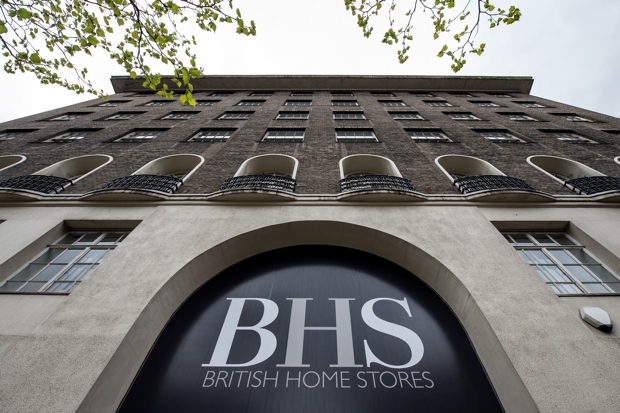Following the BHS scandal which put the retirement savings of 20,000 people at risk, the Pensions Regulator is facing the prospect of an overhaul as MPs investigate its role, The Times reports.
The work and pensions committee will examine whether the regulator should be given new powers to block takeovers if pension schemes are not adequately funded. The committee will also look at whether the regulator is fit for purpose as part of a wider investigation into Britain’s pensions framework.
Frank Field, chairman of the committee, said that he favoured recommending a cooling-off period for acquisitions where the security of pension schemes could be examined if the regulator ‘doesn’t already have a similar power by a different name now’.
Death of the plastic credit card?
The Telegraph reports that the death of the plastic credit card could be a step closer as high street names including McDonald’s and the Co-op prepare to test a breakthrough finger-scanning payment technology.
FingoPay, developed by British start-up Sthaler, uses a biometric reader to scan the veins of a shopper’s finger, building up a ‘map’ that is unique to each individual.
By connecting this pattern with a credit card or bank account, the company plans to let shoppers pay simply by placing their finger in a pocket-sized scanner, doing away with cash and credit cards.
Sthaler, founded by former music industry executive Nick Dryden, will begin testing the technology next month in Proud, a London nightclub. Dryden said McDonald’s is experimenting with a pilot of the technology, and that Sthaler is also planning a project with Co-op’s food stores.
Air fares
Passengers would be forced to pay substantially higher air fares if a new runway was built in the south east and Britain kept to its carbon targets, according to an analysis of the Airports Commission’s backing for a third runway at Heathrow.
A report published by the Campaign for Better Transport claims that carbon pricing, a measure the commission suggested could be needed to ensure British aviation emissions remain on target, would add hundreds of pounds to air fares by 2050, spelling the end of low-cost flights.
Homeowners
Homeowners in countryside villages and towns could be given cash payments to offset disruptive developments in their communities, according to The Telegraph.
Ministers’ concern has grown that people affected by unwanted developments near their houses are not adequately compensated. It could allay residents’ frustration when they feel planning permission is being granted for a building project they oppose.
Theresa May is said to be personally interested in the idea as it fits with her drive to create an economy that ‘works for everyone’.
Spending
Britons have remained cautious with their money in recent months but July’s warmer weather lifted consumer spending despite the uncertainty following the Brexit vote, according to Thisismoney.
People increased spending on clothes and meals out last month, although at lower levels than seen in recent years, according to the latest Visa expenditure index compiled by Markit.
UK consumer spending rose 1.6 per cent in July, an improvement over May’s 0.8 per cent rise and June’s 0.9 per cent increase.
Brexit
British holidaymakers are starting to feel the effects of Brexit and weaker exchange rates on their holiday spending according to a survey of summer holidaymakers.
The average holidaymaker heading to the EU is £51 worse off per person, per week, according to the survey undertaken by Prepaid International Forum, the not-for-profit trade body for the prepaid financial services sector.
This is based on the average UK holidaymaker spending £241 per week while on holiday and exchange rates plummeting 17.5 per cent (from a high of 1.43 to 1.18) since the vote to leave the EU. This means an average family of four, taking a fortnight’s holiday in the EU, needs an extra £408 to match their spending on the same holiday last year.
Bosses’ pay
The bosses of Britain’s largest public companies earned an average of £5.5 million last year, and have enjoyed a 10 per cent pay rise while wages in the rest of the economy lag far behind, The Guardian reports.
Rapid inflation for the country’s best paid executives is being driven by a small, all-male group at the top of the corporate tree, according to the High Pay Centre, which published its annual survey on earnings at FTSE 100 companies this morning.






Comments